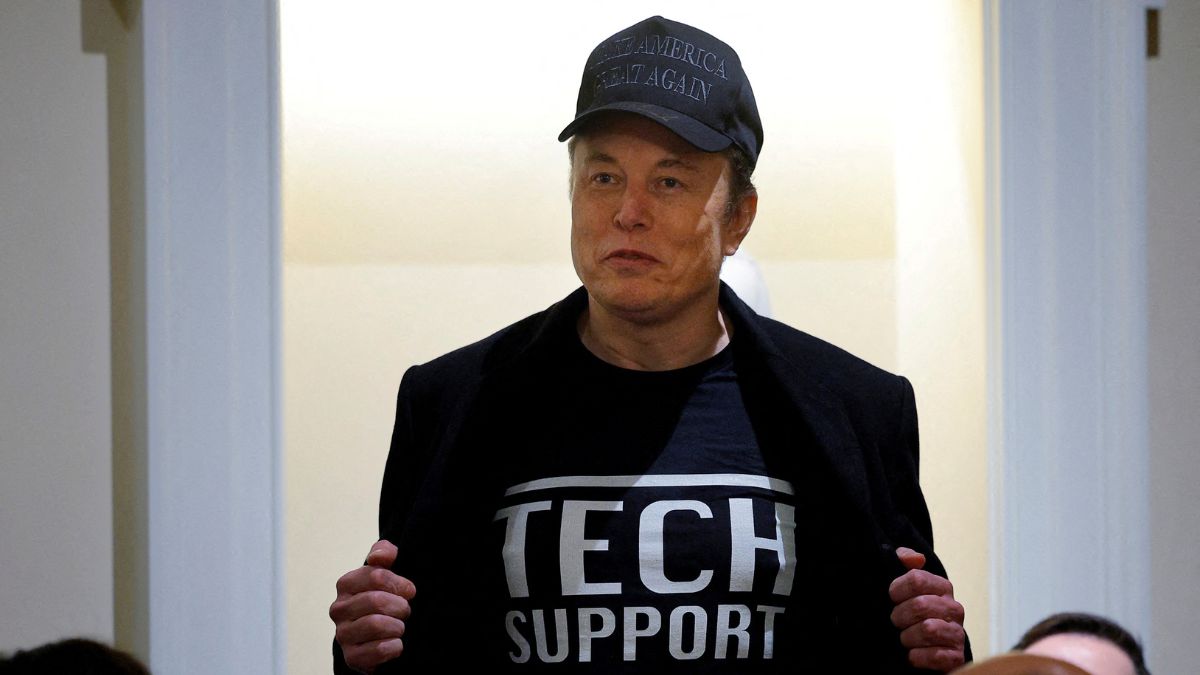Elon Musk’s tenure as a “special government employee” in the Trump administration has been nothing short of controversial.
Tasked with leading the Department of Government Efficiency (Doge), the tech billionaire has undertaken sweeping reforms, including drastic budget cuts and mass layoffs.
However, speculation has been mounting over whether Musk will step down after reaching the 130-day work limit imposed on special government employees — or if the White House intends to keep him indefinitely.
White House dismisses concerns
The special government employee designation, created by Congress in 1962, allows individuals to work in the executive branch for a maximum of 130 days within a 365-day period.
Typically, SGEs serve as consultants or advisory board members, and their status allows them to bypass certain financial disclosure requirements that full-time federal employees must meet.
Despite this established rule, the Trump White House has made it clear that Musk’s tenure will not necessarily be limited to 130 days. “No one here at the White House is tired of winning. The president has tasked Elon Musk with eliminating waste, fraud, and abuse in the federal government, a mission that will continue until completed,” deputy press secretary Harrison Fields told Politico.
Asked directly whether the administration was working on a way to extend Musk’s role beyond the 130-day limit, White House press secretary Karoline Leavitt deflected: “So, today is February 25th, so I think we’ve been here about 35 days, roughly, so ask me in another 100 days.”
Musk’s unconventional approach
Musk’s approach to government restructuring has reportedly ruffled feathers within the administration. His abrupt decision-making, often without prior consultation with senior White House staff, has led to tensions.
One example was a recent email instructing federal employees to list their top five accomplishments or risk being fired — a directive issued without informing key White House aides beforehand.
While some within the administration are eager to see Musk’s departure, others acknowledge that his influence is unlikely to wane. A political adviser close to Trump told Politico, “There are likely people who are counting the days until 130 days are up and will push against keeping him around, but I just think that’s a losing battle. He is here to stay.”
Among those reportedly uneasy with Musk’s continued presence are chief of staff Susie Wiles , deputy chief of staff James Blair, and White House Presidential Personnel Office director Sergio Gor.
However, Leavitt dismissed reports of internal dissatisfaction as “100 percent fake news.”
Will Musk’s role face legal challenges?
One of the major legal questions surrounding Musk’s extended White House role is whether he is exceeding the boundaries of what an SGE should do. Previous SGEs have included Huma Abedin during the Obama administration and Scott Atlas during Trump’s first term.
Columbia Law School professor Richard Briffault told Politico, “The concept of a special government employee is an expert consultant that comes in to give advice, but it sounds like what he is doing is far more than advice. If he’s saying to people, ‘Send me your five bullet points or you’re fired,’ that strikes me as going beyond giving advice.”
Musk’s SGE status exempts him from some of the financial disclosure requirements that apply to full-time government employees. This has raised concerns about potential conflicts of interest, particularly given Musk’s business ties with Tesla, SpaceX, Neuralink, and other ventures.
While Musk has undergone ethics training and is required to file a confidential financial disclosure report, his critics argue that his continued private-sector leadership presents a conflict of interest.
There is also uncertainty over whether the administration will attempt to work around the 130-day cap. A 2024 legal advisory from the US Office of Government Ethics suggests that an SGE may continue past the limit in “unforeseen circumstances” if the employee’s role is deemed “unique and unlikely to occur” again.
However, enforcement of this rule remains unclear, particularly after Trump recently removed the head of the Office of Government Ethics.
What’s next for Musk in the White House?
With Musk’s 130-day mark potentially falling around May 20, questions remain about whether he will continue in his role at Doge beyond that date.
US Vice President JD Vance, addressing concerns about Musk’s government involvement at the Munich Security Conference, joked, “And trust me, I say this with all humour: If American democracy can survive 10 years of Greta Thunberg’s scolding, you guys can survive a few months of Elon Musk.”
Ultimately, Musk’s future in the White House depends on Trump’s decision. As the Trump himself put it, “Elon can’t do and won’t do anything without our approval. And we’ll give him the approval, where appropriate; where not appropriate, we won’t.”
Also Watch:
With inputs from agencies
)